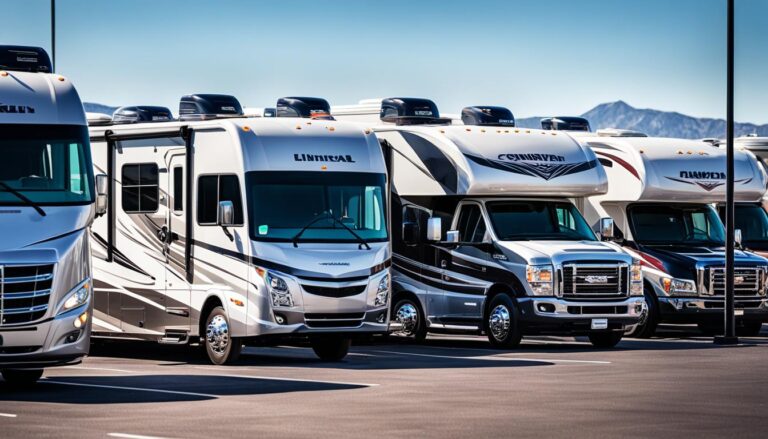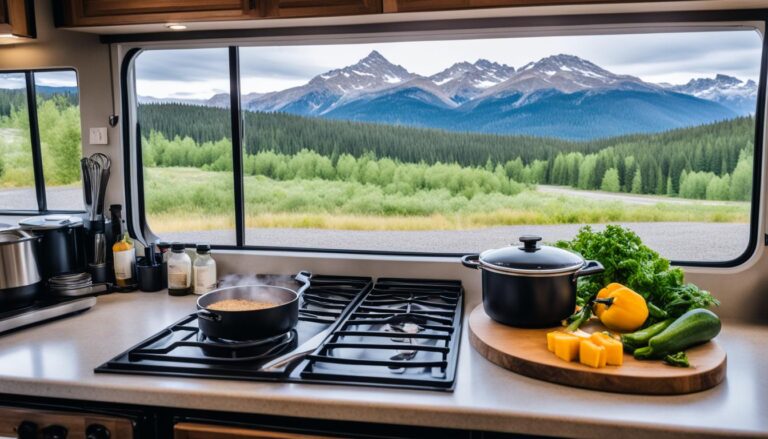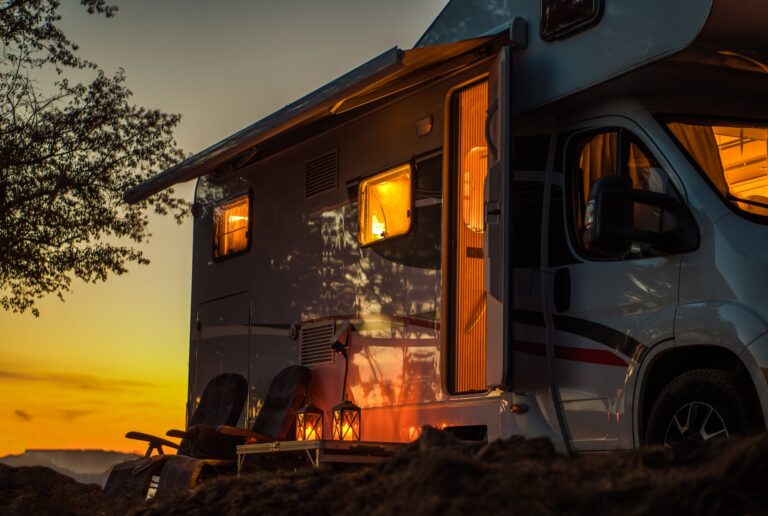The freedom and adventure of full-time RV life can be incredibly appealing, but the transition from a traditional home to living on the road can be challenging. Whether you’re a retiree looking for a new lifestyle, a digital nomad seeking the perfect work-life balance, or a family hoping to explore the world together, adjusting to full-time RV life requires planning, flexibility, and a willingness to embrace change. In this blog post, we’ll discuss some essential tips for making a smooth transition from home life to full-time RV life.
1. Research and Plan
Before hitting the road, it’s crucial to research and plan various aspects of your new RV life, from choosing the right RV to understanding the costs and logistics involved. Consider the following steps:
- Choose the right RV: Your RV will be your home on wheels, so it’s essential to find one that meets your needs and preferences. Consider factors such as size, layout, amenities, fuel efficiency, and ease of maintenance. Attend RV shows, visit dealerships, and connect with other RVers to learn about different models and options.
- Understand the costs: Full-time RV life comes with its own set of expenses, from fuel and campground fees to insurance and maintenance. Create a budget that accounts for these costs, as well as any additional expenses like entertainment, groceries, and communication.
- Learn about RV systems: Familiarize yourself with your RV’s various systems, such as electrical, plumbing, and heating. Understand how to maintain and troubleshoot these systems to prevent potential issues on the road.
- Plan your route and destinations: Research potential routes and destinations, considering factors like weather, road conditions, and availability of amenities. Join online forums and social media groups to gather insights and recommendations from fellow RVers.
- Prepare for emergencies: Equip your RV with essential safety items, such as a first-aid kit, fire extinguisher, and emergency tools. Have a plan in place for unexpected situations like breakdowns, medical emergencies, or severe weather.
2. Downsize and Organize
Transitioning to full-time RV life often requires significant downsizing and learning to live with less. Here are some tips for decluttering and organizing your belongings:
- Prioritize your belongings: Determine which items are essential for your new lifestyle and which can be sold, donated, or stored. Focus on multi-purpose items that save space and offer versatility.
- Maximize storage space: Utilize every inch of available storage in your RV, from under-bed compartments to overhead cabinets. Invest in space-saving storage solutions like collapsible containers, vacuum-sealed bags, and magnetic racks.
- Organize your belongings: Keep your RV organized by assigning a specific place for each item and maintaining a system for putting things away. Label storage areas and create an inventory list to help you locate items quickly and efficiently.
- Digitize documents and media: Instead of carrying physical copies of documents, photos, and media, digitize them and store them on cloud-based services or external hard drives. This will save space and make it easier to access your files on the go.
3. Establish Routines and Structure
Creating routines and structure can help you adapt to the full-time RV lifestyle and maintain a sense of stability. Consider the following:
- Daily routines: Establish daily routines for tasks like cooking, cleaning, and maintaining your RV. This will help create a predictable structure and ensure that essential chores are completed regularly.
- Work-life balance: If you’re working remotely while RVing, create a schedule that balances work and leisure time. Set up a dedicated workspace in your RV and establish boundaries to separate your professional and personal life.
- Social routines: Maintain connections with friends and family by scheduling regular phone calls, video chats, or online gatherings. Join RV clubs, attend meetups, or participate in online forums to build new connections within the RV community.
- Exercise and self-care: Prioritize exercise and self-care by incorporating daily physical activity and relaxation techniques into your routine. Take advantage of outdoor activities like hiking, biking, or swimming, and practice mindfulness or meditation to manage stress and maintain mental well-being.
4. Embrace Flexibility and Adaptability
Full-time RV life is filled with unexpected surprises and challenges, so it’s essential to embrace flexibility and adaptability. Keep the following tips in mind:
- Expect the unexpected: From flat tires to sudden changes in weather, be prepared for unexpected situations and have a backup plan in place. Stay calm and resourceful when faced with challenges, and remember that they’re part of the RV adventure.
- Adjust your plans: Be willing to adjust your travel plans based on changing circumstances, such as road closures, campground availability, or personal preferences. Remain open to new experiences and opportunities that may arise along the way.
- Learn from mistakes: As you adapt to full-time RV life, you’ll likely encounter mistakes andmishaps. Treat these as learning experiences and use them to refine your skills and knowledge. Share your experiences with fellow RVers and seek their advice and support.
- Stay adaptable: Be open to change and continually evaluate your RV lifestyle, making adjustments as needed. Whether it’s upgrading your RV, shifting your travel plans, or adopting new routines, staying adaptable will help you thrive in your new lifestyle.
5. Stay Connected and Informed
Staying connected and informed is crucial for a successful full-time RV life. Consider the following ways to maintain communication and access to essential information:
- Internet access: Reliable internet access is essential for staying connected, working remotely, and accessing resources. Research mobile hotspots, Wi-Fi boosters, and data plans that best suit your needs. Make sure to have backup options in case of connectivity issues.
- Weather monitoring: Keep an eye on the weather forecast for your current location and upcoming destinations. Use weather apps, websites, or radio stations to stay informed and plan your travels accordingly.
- Road and traffic updates: Stay updated on road conditions, construction, and traffic delays by using GPS devices, apps, or websites. This will help you plan your route and avoid potential problems on the road.
- Local regulations and resources: Research local regulations and resources for each destination, including rules for overnight parking, campsite reservations, and permit requirements. Familiarize yourself with local services and amenities, such as grocery stores, laundromats, and repair shops.
In conclusion, transitioning from a full-time home life to full-time RV life can be an exciting and rewarding experience. By researching and planning, downsizing and organizing, establishing routines and structure, embracing flexibility and adaptability, and staying connected and informed, you can make the adjustment smoother and set yourself up for success on the open road. As you embark on your RV adventure, remember that preparation, patience, and a sense of humor will go a long way in helping you adapt to your new lifestyle and enjoy the journey that lies ahead.





